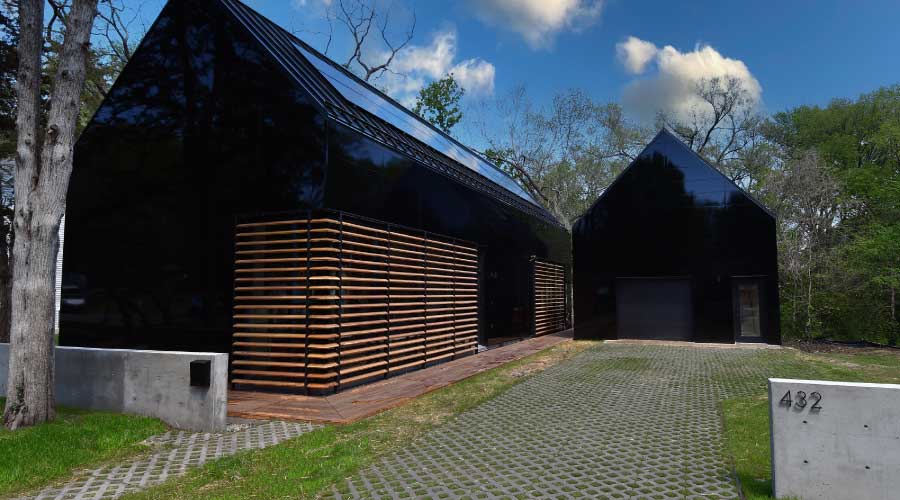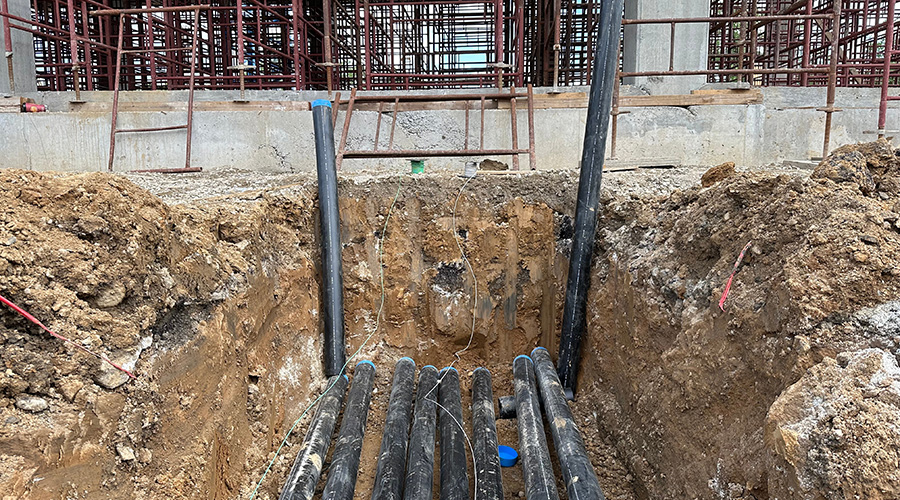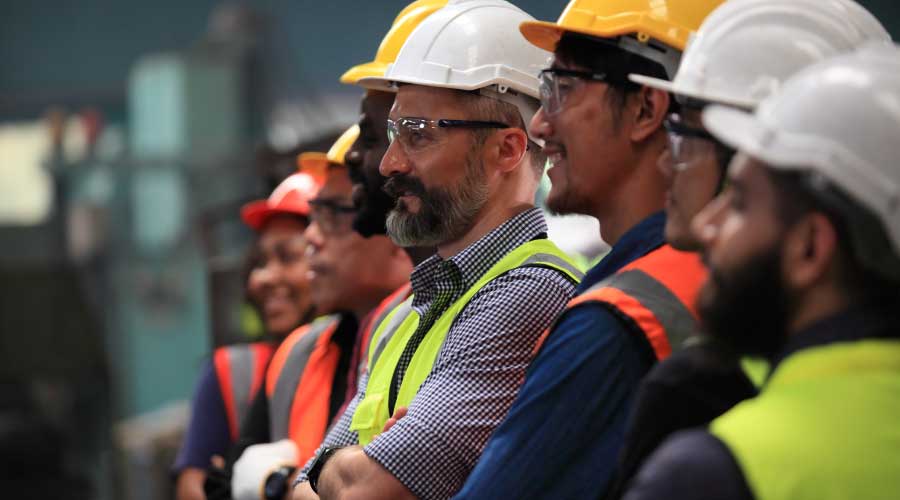
Atlas Products Used in Studio 804's LEED Platinum Build Project
Studio 804 and Atlas had worked together before this project. November 3, 2023
Studio 804 is a year-long, educational opportunity for graduate students who are entering the final year of the Master of Architecture program at the University of Kansas (KU) School of Architecture and Design. Students are tasked with real-world building challenges as part of the program, including the designing, hiring of consultants, establishing budgets, getting permits and the physical act of building the entire structure. In addition, Studio 804 students specify all products and solicit donations, which helps them understand the role that building manufacturers play in bringing new technologies to market, as well as the real costs of the materials used in construction.
Because Studio 804 and Atlas have worked together in the past, the Architecture program, led by Dan Rockhill, was familiar with the EnergyShield polyiso insulation solutions and selected the sustainable products to construct their new project. Atlas and Studio 804 have collaborated since 2020, previously constructing two unique projects, including a single-family LEED platinum certified residence in Lawrence, Kansas and a sustainable housing community built out of shipping containers for people experiencing homelessness.
The current Studio 804 project is located in an established residential neighborhood built at 432 Indiana Street, a short walk from Burcham Park and the cultural vibrancy of downtown Lawrence, Kansas. The historic Pinckney Neighborhood is a perfect place to integrate the history of Lawrence with the future of sustainable design. This residence was built based on the U.S. Green Build Council’s Leadership in Energy and Environmental Design (LEED) Platinum Standards. This minimizes the impact to the environment plus offers the long-term energy savings that a LEED Platinum project has for the homeowner.
The 432 Indiana Street project aligns with the long-term mission of the city of Lawrence for creating a sustainable future that is also affordable. Community engagement during a recent study found that residents were open to seeing small-scale lots and dwellings infill their neighborhoods to combat housing shortages. Part of the challenge was to design a house that was in scale with the surrounding neighborhood. The house features an open concept floor plan for the living, kitchen and dining area. The upstairs bedroom suite is a flexible area that adapts to the changing privacy needs of families in different stages of their lives. The opportunity for a detached garage with accessory dwelling unit above nicely adheres to the goal of increased residential density in the heart of Lawrence.
Professor Dan Rockhill and his students worked closely with the Atlas team to identify and install the most efficient building materials, including Atlas polyiso insulation, an easy-to-install, cost-effective and sustainable energy-efficient solution for roofing and wall applications.
Polyiso foam insulation is used in both commercial and residential construction. The Atlas insulation products contain a polyiso core, which achieves higher effective R-values with minimal material thickness needed.
For the 1,800-square-foot house, sustainability and durability against the elements was of vital importance. The structure needed high-performance insulation that would function exceptionally well under weather conditions that are often extreme in Kansas – a mixed climate that can run from very hot and muggy in summer to very cold and icy in winter. In the summertime with the heat index, it can be 115 to 120 degrees Fahrenheit. With wind chills in the winter, the weather can easily go below zero. A product like polyiso continuous insulation from Atlas can handle the temperature swings and keeps the structure’s temperature efficient.
Atlas provided two products for the insulation needs at the 432 Indiana project, including ACFoam NailBase for the roof assembly and EnergyShield for the walls. The Atlas ACFoam NailBase product was used in the steep slope roof’s construction because it has a nail-able OSB surface adhered directly to the polyiso insulation. It makes installation much quicker as the standing seam metal roofing panels can attach directly to the Atlas product, removing an entire step from the roof assembly process. Because the roof assembly is a key component to any structure, it is important to invest in the best materials that will have a lasting impact on energy savings and performance for the roof’s life span. Roof insulation is an important part of the roof assembly, helping control inside temperatures and reducing strain on HVAC systems.
The residence used 5.5 inches of batt cavity insulation within the walls of the house, with two inches of Atlas EnergyShield continuous insulation on the exterior, providing an R-value of 13.1. The roof assembly continues the efficient building envelope with three inches of ACFoam Nailbase insulation with a long-term thermal resistance (LTTR) of 15. In total, the project has an insulative value of R-40 in the wall assembly, which makes it extremely well insulated and air-tight with all of the joints taped to provide a weather-tight cocoon-like building envelope.
The Atlas polyiso products helped meet the LEED certification requirements. The 432 Indiana residence project is almost 35 percent greater than the minimum required, according to the energy code in the Lawrence municipality. The Atlas products helped create a redundancy of the structure’s WRB and air barrier design with excellent R-value advantages with all seams and potential penetrations in the insulation being taped.
Next
Read next on FacilitiesNet












